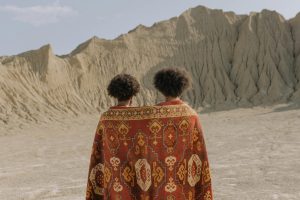Hammam Hospitality: What to Expect at Moroccan Bathhouses
When it comes to relaxation and self-care, nothing beats a traditional hammam experience. For centuries, the Moroccan hammam has been a staple in the daily lives of locals, providing a sanctuary for cleansing, rejuvenation, and socializing. This ancient practice of communal bathing has now become a popular tourist attraction, with its traditional and therapeutic techniques attracting visitors from all over the world.
The Origin of Hammam Hospitality
The word “hammam” was derived from the Arabic term meaning ‘a place of warmth’. It was believed to have originated during the 8th century when Arab traders introduced it to the Moroccan culture. However, some sources claim that the practice dates back to the Roman era, where it was known as a “thermae.”
In the early days, hammams served as a central meeting place for the community, where people would gather to socialize and cleanse themselves. It was also considered a sacred ritual in preparation for weddings and other important events. Today, hammam hospitality is still deeply rooted in Moroccan culture, and locals continue to integrate this tradition into their daily routines.
What to Expect at a Moroccan Hammam
The Preparation
Before your hammam experience begins, you will be given a handwoven cotton cloth, known as a peshtemal, to wrap around your body. This garment is similar to a towel and is used for modesty during the bathing rituals. You will also be provided with a pair of wooden clogs, known as “babouches,” to wear during the hammam to prevent slipping on the wet floors.
The Experience
Once inside the hammam, you will be led to a warm room known as the “wet room.” This is where the traditional bathing ritual takes place. The walls and floors are covered in mosaic tiles, and there will be a large basin filled with hot water in the center of the room. You will then have a choice between a self-service hammam or a hired assistant who will perform the ritual for you.
In a self-service hammam, you will be given a bowl and a scoop to pour water over your body. You will then apply black soap, a natural exfoliating product made from olive oil, onto your skin and let it sit for a few minutes. Afterward, you will use a kessa glove to scrub your body vigorously, removing any dead skin cells and impurities.
If you opt for a hired assistant, known as a “tellak,” they will lather the black soap on your body and use a kessa glove to scrub you from head to toe. They will also massage your body with argan oil, which is known for its nourishing properties, leaving your skin feeling smooth and rejuvenated.
The Cool-Down
After the bathing ritual, you will be ushered into the “cool room” to relax and cool down. This room is usually dimly lit, and the walls are covered in woven Moroccan rugs and cushions for you to sit on. You can also enjoy a cup of mint tea, known for its calming and digestive properties, while you unwind.
The Benefits of Hammam
Aside from the obvious benefits of relaxation and cleansing, hammams also have several health benefits. The exfoliating and deep cleansing help improve blood circulation and promote lymphatic drainage, leaving your skin looking radiant and rejuvenated. The heat from the steam and hot water also helps open up your pores, allowing the natural ingredients in the black soap and argan oil to penetrate deeply into your skin.
Additionally, hammams are also known to have therapeutic benefits for those suffering from respiratory problems, muscle tension, and joint pain. The steam and heat help relieve congestion and stiffness, while the massage techniques used during the hammam promote relaxation and tension release.
In Conclusion
In conclusion, experiencing hammam hospitality in Morocco is more than just a cleansing ritual; it is a cultural experience that allows you to immerse yourself in a tradition that has been passed down for centuries. So, if you’re planning a trip to Morocco, be sure to add a visit to a traditional hammam to your itinerary and indulge in a rejuvenating and enriching experience unlike any other.











